
Les Luthiers is an Argentine comedy-musical group, very popular also in several other Spanish-speaking countries including Paraguay, Guatemala, Peru, Chile, Ecuador, Spain, Colombia, Mexico, Uruguay, Bolivia, Cuba, Costa Rica and Venezuela. They were formed in 1967 by Gerardo Masana, during the height of a period of very intense choral music activity in Argentina's state universities. Their outstanding characteristic is the home-made musical instruments, some of them extremely sophisticated, which they skillfully employ in their recitals to produce music and texts full of high class and refined humor. From 1977 until his death in 2007, they worked with Roberto Fontanarrosa, a renowned Argentine cartoonist and writer.
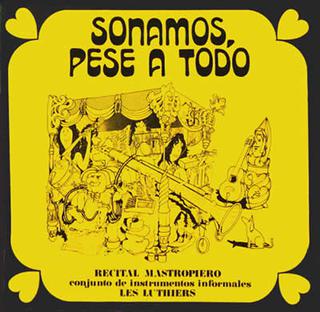
Sonamos Pese A Todo, the debut album of Les Luthiers, released in September, 1971. It was recorded in late 1970 at ION Studios in Buenos Aires, and it featured Les Luthiers as a quintet, with some guest musicians and an orchestra for some numbers. The album was done before they collectively credited their works to everybody in the group, so individual authorship is included. Ernesto Acher wasn't a member of Les Luthiers when they recorded the project, but he was instrumental in getting the album released.

Cantata Laxatón is the second album by Les Luthiers, released in August 1972.
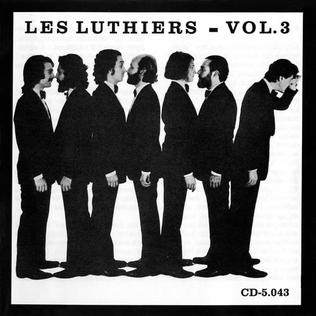
Les Luthiers – , album released in October, 1973.

The fourth album of Les Luthiers, released in November 1976. From now on, there are no individual credits for the songwriters, although it's been confirmed later that both 'Teresa y el oso' and 'Doctor Bob Gordon...' were composed by Ernesto Acher, with script by Marcos Mundstock. 'Serenata Mariachi' originated from Lopez Puccio and Maronna, and then it was revised lyrically by Mundstock and musically by Acher. As for 'Mi aventura por la India' and 'La yegua mia', actual authorship has never been officially confirmed, and the public's relied on educated guesses.

Muchas gracias de nada is the sixth album by Les Luthiers, recorded live in the Teatro Coliseo. It was released in October 1980.

Carlos Alberto Daniel López Puccio is an Argentinian multi-instrumentalist, orchestral and choral conductor, composer, singer, arranger and one of the current members of Les Luthiers.

Jorge Maronna is an Argentine multi-instrumentalist, composer, singer, author and a founding member of the comedy-musical group Les Luthiers. Born August 1, 1948, in Bahía Blanca, he joined I Musicisti while still a teenager, and helped Gerardo Masana and Carlos Iraldi build the first informal instrument, the "contrachitarrone da gamba", a blend between a guitar and a cello, and it's played like the latter one. In 1967, he was part of the four people who left I Musicisti and formed Les Luthiers. There, he and Masana composed most of the music for early shows, and to this day Maronna still pens many musical pieces for the group, often in collaboration with one of his bandmates.
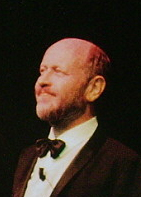
Marcos Mundstock was an Argentine musician, writer, comedian, actor, broadcaster and copywriter. He had dual nationality of Argentina and Spain, having obtained the latter in 2012.

Carlos Núñez Cortés is a pianist, actor, composer, multi-instrumentist and singer. He has been a member of Les Luthiers since 1969 until 2017, when he retired. He also wrote 3 books : "Los juegos de Mastropiero", "100 caracoles argentinos" and "Memorias de un luthier".

Ernesto Acher is an Argentine comedian, actor, composer, arranger, multi-instrumentalist and orchestral conductor. Between 1971 and 1986 he was a member of the celebrated Argentine group Les Luthiers, with which he acted as composer, comedian, singer, and performer on more than twenty instruments, some of which he created himself. Before separating from the group, he was involved in individual projects as composer – including a soundtrack, a quartet for clarinet and strings, a string sextet and a symphonic poem for viola and orchestra. In 1988 he founded the La Banda Elástica (The Elastic Band), gathering some of the most outstanding Argentine jazz musicians. The band dissolved in 1993. Since then he has developed several musical and comedy projects, and performed as an orchestral conductor.

Destiny is the seventh studio solo album released by Cuban-American singer Gloria Estefan, but is the nineteenth of her career overall. It shipped 1.6 million copies worldwide in its first month of release.

Discos Qualiton was a record label, published by the recording studio Fonema S.A. A garage experiment in Rosario, Argentina in 1961, Qualiton would later become a major independent record label influencing a generation of artists, writers, musicians, poets, and filmmakers.
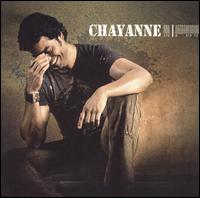
Cautivo is the 12th studio album recorded by Puerto Rican-American recording artist Chayanne. The album witch released by Sony BMG Norte on September 27, 2005. This album became his third number-one set on the Billboard Top Latin Albums, and includes the singles "No Te Preocupes Por Mí", "Te Echo de Menos" and "No Sé Por Qué".
Alexander Mikhailovich Raskatov is a Russian composer.
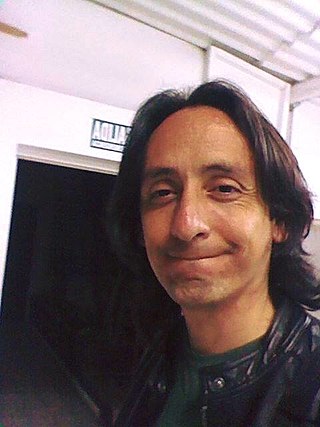
Sadiel Cuentas is a Peruvian composer of contemporary classical music.















